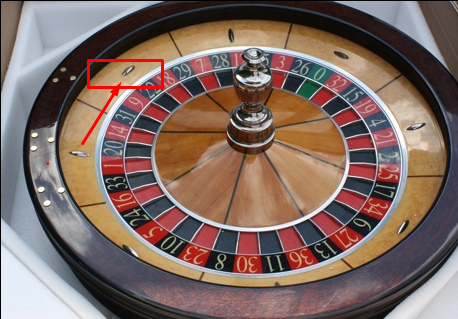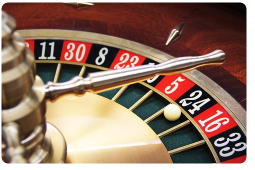Gamblers have been trying to overcome the house edge in roulette for centuries. Most of them have met little to no success.
But some of them have succeeded.
Breaking Vegas The Roulette Assault - Roulette Bias Analysis. They are not at all affiliated with us although we teach bias analysis methods that are considerably more advanced, for free at our.
Some of them even learned how to predict the numbers when playing roulette.
That might be the best way to beat the game, in fact. After all, if you know which number is going to come up, you can guarantee that you’ll win your next bet.
1- Developing Your Innate Psychic Powers
I don’t believe in psychic powers, but I understand that some of my readers do believe. In fact, I have a close friend who’s a phone psychic, and he’s convinced that he really has “the gift.”
I just don’t think anyone has ever provided any convincing evidence of precognition in anything like a controlled setting.
But if you want to develop psychic powers to beat roulette, here are some tips I’ve found:
- Visualize your third eye.
- Meditate.
- Pray.
My yoga teacher has me do this during our sessions. I don’t think it’s helped me with predicting the future, although the longer I’m sober, the better able to predict the future I become.
The idea is that your third eye is what’s going to be able to see the energy fields surrounding everything and help you predict the future.
I’m a big fan of meditation because it has benefits that are entirely separate from trying to be able to tell the future. Meditation can help you lower stress, and it can help you be more present. It’s not hard to do, either. Start small and work your way up.
Some people firmly believe that by increasing their connection with God or the universe, they’re able to tap into intuition that isn’t available to other people who are cut off from the source.
Prayer and meditation put you in touch with the source of everything, which, in turn, enables you to predict the future with more accuracy.
How you pray and meditate is, of course, up to you.
But I don’t know anyone who claims to have psychic powers who isn’t praying and/or meditating on a regular basis.
2- Watching the Dealer
Do some roulette dealers hit specific numbers more often than other numbers because of their dealing habits?
If you could spot some kind of croupier tell or dealer signature in roulette, you could clean up.
Realistically speaking, though, dealers can’t force the ball to land on a specific number. That’s just not a realistic feat.
But you don’t need them to hit the same number repeatedly. You just need to know which section of the wheel the ball is most likely to land in. If you know that, you can bet all the numbers in that section and win more often than probability would lead you to win.
And you don’t even need a huge change in probability to make this worthwhile.
Most experts agree that so-called “sector slicing” isn’t a realistic way to predict even a subset of roulette numbers, but let’s look at the math of why that would be great if you could pull it off.

When you place a single number bet, you have a 1/38 probability of winning that bet. The payoff is 35 to 1, so the casino has an obvious edge.
But if the probability of landing on some numbers is better, say 1/34 instead of 1/38, then the edge tilts away from the casino and toward the player.
How To Find Roulette Biases
It’s possible, though, that a dealer lands in a specific section of the wheel more often than usual without even knowing it. After all, this is all muscle memory for the croupier. He releases that metal ball into action at a specific speed and at a specific time.
You might even want to track how far away from the release point the ball usually lands. Let’s say that the ball always lands 10 or 14 numbers away from where it’s released. You’d have a huge advantage being able to bet on those 10 or 14 numbers, even though the actual numbers would change every game.
3- Watching the Ball and the Wheel Closely
How To Find Roulette Biased
Twenty years ago, you could find numerous books and articles about how you could predict approximately where the ball will land just based on looking at it. Such a strategy isn’t widespread anymore, but is it possible?
First of all, you’d need to be able to gauge the speed of the ball and the speed of the roulette wheel. I’m not sure if you’ve spent much time at a roulette table, but just the idea of trying to do that boggles my mind.

The speed of the wheel is probably more important than the speed of the ball, but both matter. You also need to keep in mind that the ball is going to bounce around a little bit before falling into a numbered pocket.
Practically speaking, this strategy works like the dealer signature strategy. Only instead of looking for a trend unique to that dealer, you’re just watching the ball and the wheel and placing your bets quickly on what you predict based on the ball speed and wheel speed.
This might be worth a try, but I still wouldn’t gamble money I needed for other purposes on this approach.
4- Using a Device
Using a computer to predict where the ball will land in a roulette game is considered cheating. In Nevada, that’s a felony. You do NOT want to get caught doing this.
In fact, I recommend against even trying this. There are easier ways to get an edge when gambling that don’t involve the risk of going to jail.
But gamblers have used roulette computers to beat the game. Such a computer works like a radar gun that a highway patrolman uses – it tracks the speed of the ball. It also analyzes angles and predicts where the ball will land.
As with the other methods mentioned already, you’re going to bet on multiple numbers at once, not just one number.
Even a computer can’t predict a specific number with any kind of accuracy.
5 – Determining the Bias of a Wheel
It’s not just dealers that have a bias. Some wheels are imperfect, and they might have a bias toward and against specific numbers, too.
To find a biased wheel, you would need to track the results for at least 1000 spins. Even then, the margin of error could be significant. In any small set of random occurrences, some are going to deviate from what probability predicts.
That’s deviation, not bias.
A better approach might be to try to track 10,000 spins.
But you’ll run into a couple of problems with this advantage technique:
- The first is that you might spend all this time “clocking” a roulette wheel only to find that there’s no bias at all. Then you’ve just wasted your time.
- The second is that even if you find a roulette wheel you’re convinced has enough of a bias to make it worth your while, that wheel might move or be replaced at any time.
Finding a biased roulette wheel sounds like a great advantage strategy in theory.
But in real life, it isn’t practical at all.
6- Embrace the Gambler’s Fallacy
I can promise this technique for predicting the next roulette number won’t work, but we’ll talk about it anyway.
The Gambler’s Fallacy is when you believe that the probability of something that’s going to happen has somehow been affected by what’s already happened.
We know that it’s unlikely to get a red result eight times in a row on a roulette wheel. If the ball has landed on red seven times in a row, we might predict that the ball is surely going to land on black on the next spin.
Mathematically, that isn’t true.
But you might embrace it anyway and try to use that to inform your betting decisions.
It won’t help in the long run, but it’s as useful as any other strategy.
7- How to Predict the Next Roulette Outcome With 100% Accuracy
If you could tell your friend that you could predict that the ball will land in a specific number set, how could you be sure that you were correct 100% of the time?
Just predict that the ball will land on either a 0, a 00, or the numbers 1 through 36.
You could even bet on all those numbers, but if you did, you’d lose money consistently and repeatedly because of the house edge.
Conclusion
There are seven ways to predict roulette numbers. I’m not confident that you can use any of these methods consistently to win money in a modern casino but give any or all of them a try.
Well, except for the computer.
If you see some success – or even if you don’t – share your experiences in the comments.
Please enable JavaScript to view the comments powered by Disqus.
Comments are closed.